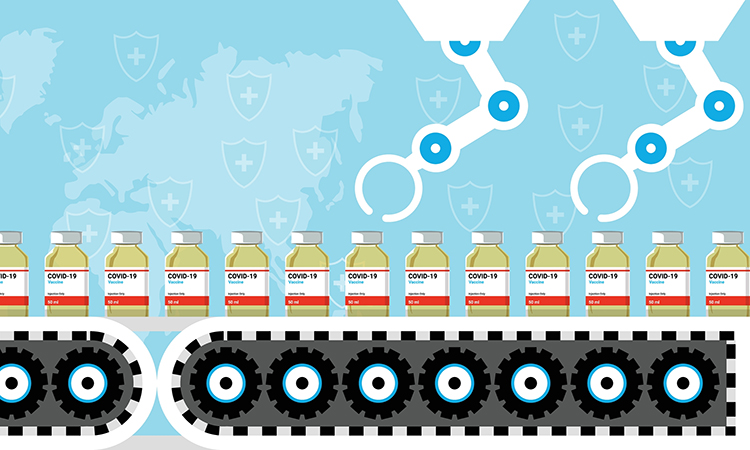Mathematical model predicts long-term effectiveness of COVID-19 vaccine
Posted: 12 January 2023 | Izzy Wood (Drug Target Review) | No comments yet
US scientists have designed a mathematical model that can predict COVID-19 vaccines’ effectiveness over the long term in healthy individuals and those who have cancer or suppressed immune responses.


Researchers from Massachusetts General Hospital (MGH), US, have designed a mathematical model that can predict the course of vaccine-induced immunity against COVID-19 in different patient populations, including otherwise healthy individuals and those who have cancer or suppressed immune responses.
The model also makes predictions under potential future scenarios (such as the emergence of SARS-CoV-2 variants with greater immune evasion) and reveals the benefits of the new bivalent vaccines.
The model, published in PNAS, builds on the investigators’ previously developed mathematical framework that they used to understand why treatment responses vary widely among people with COVID-19 and to identify biological markers related to these different responses.
In this latest work, also published in PNAS, the scientists addressed the need for predictions of vaccine effectiveness over time.
“We used this model to simulate how differences in viral, patient, and vaccine characteristics may affect COVID-19 outcomes,” said senior author Dr Rakesh K. Jain, director of the E.L. Steele Laboratories for Tumour Biology at MGH.
The model incorporates different variants of SARS-CoV-2 (including hypothetical ones), original and bivalent forms of the vaccine, and different considerations for certain patients, such as interactions between the virus, immune cells, and tumour cells in individuals with cancer.
Experimental mRNA vaccine protects against all 20-subtype influenza viruses
The model predicted that a booster dose of either: Pfizer-BioNTech or Moderna mRNA vaccines can induce robustly enhanced antibody and immune cell–based responses against SARS-CoV-2, to provide sufficient protection for more than one year in healthy individuals.
However, the model suggested that for people with suppressed immune responses or those with cancer receiving immunosuppressive treatments, the booster effect may wane fairly quickly. These patients should therefore be given booster vaccines on a more frequent basis.
For people receiving the Johnson & Johnson/Janssen vector vaccine, additional booster doses should be considered for everyone. The analysis also revealed that the optimal schedule for vaccine booster doses is not the same for all SARS-CoV-2 variants.
“Our results could help inform the timing of booster vaccinations in individuals with different characteristics and comorbidities, as well as for novel viral variants,” added Jain.
“As we approach an endemic phase of SARS-CoV-2, a rational approach to vaccine booster utilisation may help ensure equitable access to vaccines and help prevent further outbreaks and development of new variants.”
Related topics
Covid-19, Drug Development, Lab Automation, Targets, Vaccine
Related conditions
Cancer, Covid-19, SARS-CoV-2
Related organisations
Massachusetts General Hospital (MGH)
Related people
Dr Rakesh K. Jain








